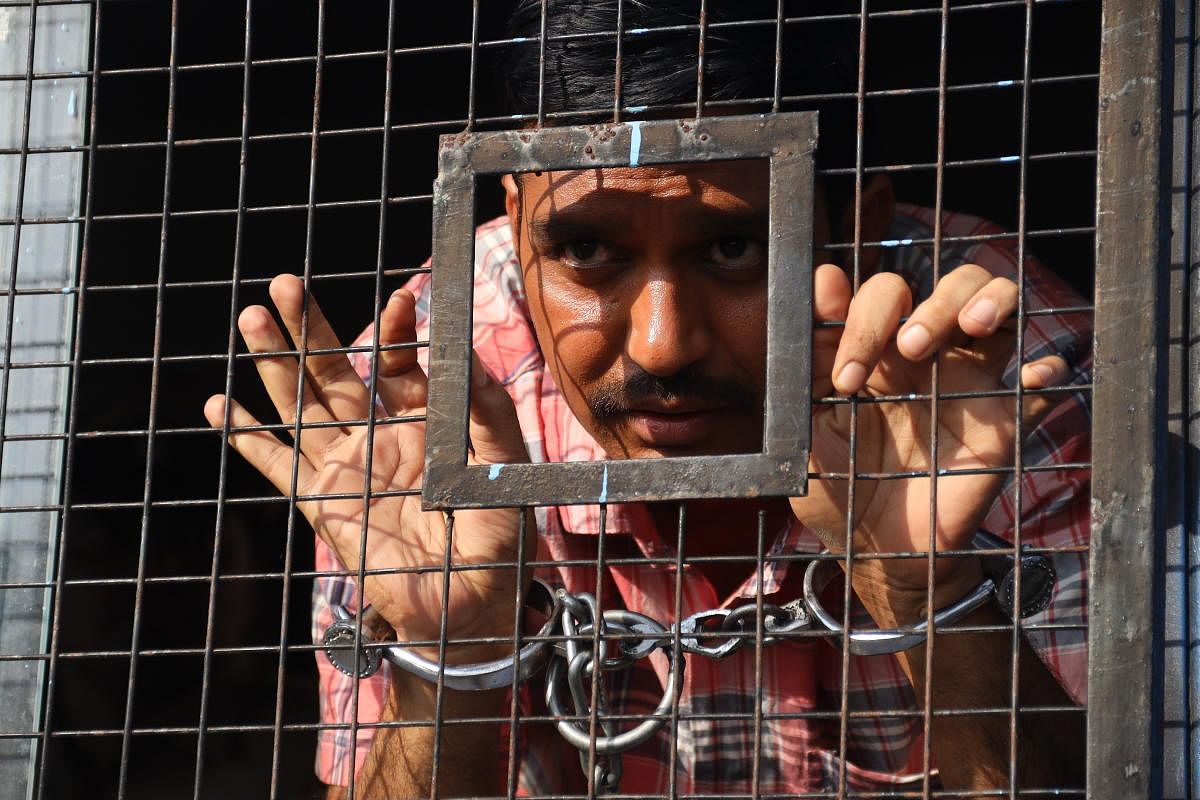
When the Unlawful Activities (Prevention) Act (UAPA) of 1967 is slapped on Manju, a boy from the Malekudiya tribe, advocate Suresh Hegde, played by Balaji Manohar, says, “The strictest laws become the severest injustices.”
This film is about what happens to the student, wrongly accused of terror, and how he is eventually acquitted. It shows how tribals struggle for land rights and livelihoods, and how subsequent governments suppress them. The action shifts from the forests in coastal Karnataka to a courtroom in Mangaluru.
Director Mansore, known for such sensitive films as Act 1978 (2020) and Nathicharami (2019), effectively strongly drives home a point in '19.20.21'. In one scene, a policeman’s granddaughter asks whether the police can lock up and beat anyone at will. The policeman is lost for an answer.
The soul of the film lies in the courtroom drama in the second half. Real-life court arguments are articulated and presented well. The dialogues sound preachy, but then, courtroom lines in most films tend to generalise and make larger points.
Manju is played with aplomb by Shrunga B V. Balaji Manohar as the lawyer, Rajesh Nataranga as Rafi the social activist and Venkatesh Prasad as the journalist are also brilliant.
The film campaigns for education, better laws, and empathy. It also offers hope: the media highlights the plight of tribals, an MP takes up their cause in parliament, and justice gets served. It shows how UAPA introduced in 1967 continues to be slapped on innocents, and why it is a law that must be re-examined.
In fact, 19-20-21 is perhaps the first Kannada film in recent years comparable in activist fervour to Jai Bhim and Visaranai (both Tamil). It is persuasive and packs a punch even though it does not have a big star cast. It ends on an optimistic note, with the message that the Constitution holds answers to every problem in our democracy.
Ambedkar, Bhagat Singh, Che Guevara are some leaders who inspire the democratic protests shown in the film. The Karnataka context is underlined sensitively, with the film referring to Siddalingaiah’s poem Yaarige banthu ellige banthu nalavattelara swatantrya, and Devanuru Mahadeva’s novel ‘Odalala’.
The symbolism in the movie is by no means subtle. Since the attempt is to retell a real story, the ideological bent seems justified. It’s a real story of our times, of our politics and policies.
The explanation of the title—what Articles 19,20 and 21 mean to an Indian—is the most powerful part of the movie. US-based courtroom dramas show people arrested “pleading the fifth” often. The fifth amendment of the US constitution empowers a citizen with the right to “not self-incriminate” by testifying against oneself.
We in India barely know the existence of such a law here. Article 20 of the Indian constitution prohibits self-incrimination—the testimony provided by one by force or otherwise cannot be used against him/her. This part of the law is highlighted in the movie, along with Article 19 (freedom of speech and expression) and Article 21 (right to dignified life).
The film also misses a chance to introduce grey shades—to the cops and ANF crew, with their side of the story. The Naxal part of the story could have been articulated better, too. The story track of a politician, played by B M Giriraj, does not add much value to the film.
Shiva Kumar's cinematography and the music from Bindhumalini create tension without making the proceedings melodramatic. The film’s nonlinear narrative is a bit confusing, and one feels the editor (Suresh Arumugam) could have stepped in to fix that. Overall, an engaging film, and a film with a heart.
Full disclosure: The movie is based on true events in the life of a journalist at the Prajavani, published by TPML, which also publishes Deccan Herald.